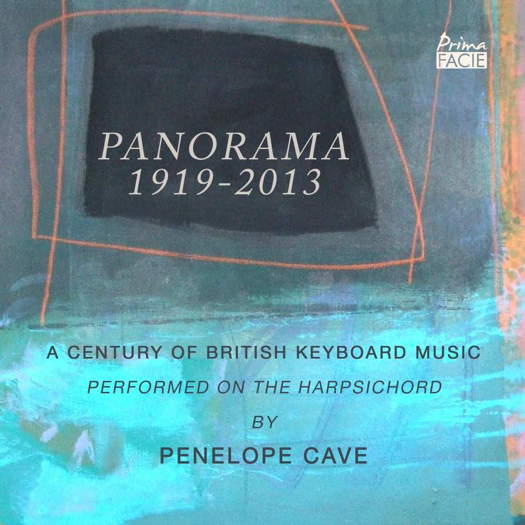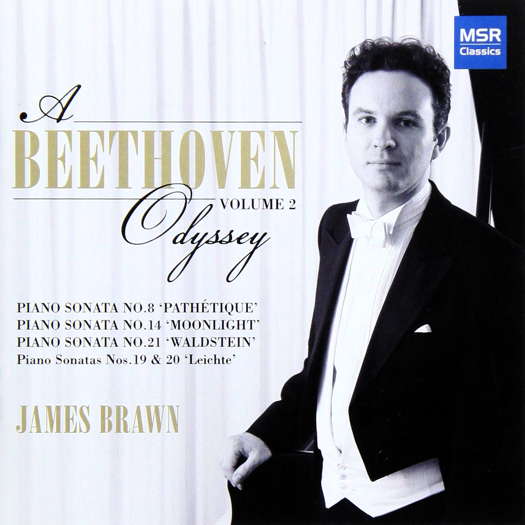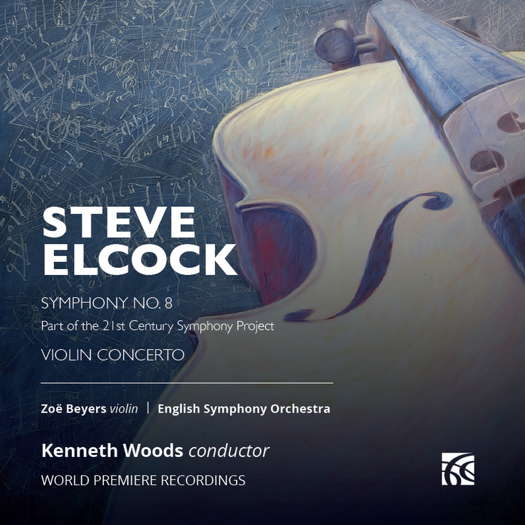- panpipes
- Holland
- Hans Holewa
- Jón Leifs
- William Sterndale Bennett
- dramaturge
- Fauré: Cantique de Jean Racine
- Nicholas Hersh
 SPONSORED: CD Spotlight. A Fantastic Collection. Penelope Cave Panorama CD. Little-known harpsichord gems, strongly recommended by Alice McVeigh.
SPONSORED: CD Spotlight. A Fantastic Collection. Penelope Cave Panorama CD. Little-known harpsichord gems, strongly recommended by Alice McVeigh.
All sponsored features >>
 SPONSORED: CD Spotlight. Perfect Indeed - More Beethoven from James Brawn, recommended by Andrew Schartmann.
SPONSORED: CD Spotlight. Perfect Indeed - More Beethoven from James Brawn, recommended by Andrew Schartmann.
All sponsored features >>

Originality and Freshness
GEOFF PEARCE is impressed by Steve Elcock's Violin Concerto and Eighth Symphony
'... well-balanced and quite beautiful ...'
I do not think that I have heard anything by Steve Elcock (born 1957) before. This is my loss, because he is regarded as one of the UK's foremost composers, even though this has only recently come about. Whilst he is a self-taught composer, this is not evident in these two works, and his output is quite substantial including ten symphonies to date. If the two works presented on this release are any indication to the depth and quality of his work, then he will be a composer well remembered.
The Violin Concerto, Op 13, is in three movements and was started in 1996. There was a long break before the composer worked on the last movement in 2006. It was not until 2022 that the work was premiered - with the same forces as on this recording.
The first movement is fast and energetic and the soloist enters almost from the beginning. There is an originality and freshness in this movement. While there is an intensity and drive, it is not at all grim and there are moments where the music relaxes so one does not feel overwhelmed. This is obviously modern music, but it is definitely very listenable. The composer has a firm grasp of orchestration and the forces gathered give their all to deliver a fine result.
Listen — Steve Elcock: Allegro vivo (Violin Concerto No 1)
(NI 6446 track 1, 9:33-10:22) ℗ 2024 Wyastone Estate Ltd :
The second movement contrasts the first movement. It is slow and reflective for the most part. The composer uses a 'change-ringing technique' to get the effect of distant bells in the strings, against which the soloist thoughtfully sings above. The effect is quite glorious and beautiful, and the climax of the work is filled with joy, before the subdued nature of the opening of the movement reasserts itself.
Listen — Steve Elcock: Molto tranquillo (Violin Concerto No 1)
(NI 6446 track 2, 8:36-9:18) ℗ 2024 Wyastone Estate Ltd :
The final movement is a passacaglia and is the shortest of the movements. It starts at an andante pace but slowly accelerates so that by the end of the work, the tempo is presto. The work ends in a statement of the main theme played by the timpani and soloist in a duet which creates a thrilling ending to this well-balanced and quite beautiful concerto. I enjoyed this work very much.
Listen — Steve Elcock: Passacaglia. (Violin Concerto No 1)
(NI 6446 track 3, 5:57-6:40) ℗ 2024 Wyastone Estate Ltd :
The other work on this recording is the Eighth Symphony, Op 37. It began as a string quartet, in 1981, then was further developed as a string piece and then, because of urging by the conductor on this recording, developed into a full symphony. It is in one movement of about twenty-three minutes in length, but contains a lot of contrast. I have read that Elcock was influenced a lot by a Swedish composer Allan Pettersson. I am very fond of Pettersson's works, and his symphonies are often structured in one movement that grows out of small germ cells. This work also does the same thing. The symphony is powerful and almost somewhat desperate and frantic at times. This may be reading too much into it, but given the troubled times we are now experiencing and the trepidation that many of us feel, this work speaks to me. The Symphony ends quietly on a rather sorrowful note.
Listen — Steve Elcock: Symphony No 8
(NI 6446 track 4, 19:00-19:57) ℗ 2024 Wyastone Estate Ltd :
I do believe Steve Elcock will be one of those composers that will be talked about and listened to for some time. This recording of two very fine works features a superb violinist Zoë Beyers and a very good orchestra indeed - the English Symphony Orchestra, conducted by Kenneth Woods, who obviously understands this composer and his works. This is a recording not to be missed. I am pleased to see a well written and informative booklet accompanying this disc.
Copyright © 26 May 2024
Geoff Pearce,
Sydney, Australia



